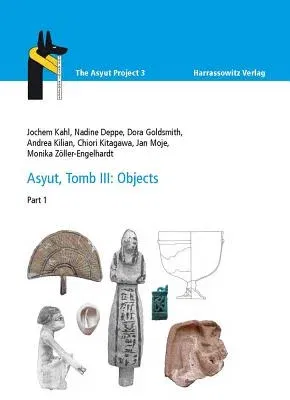Jochem Kahl
(Author)Asyut, Tomb III: Objects: Part 1 (1., Aufl.)Hardcover - 1., Aufl., 23 November 2016

Qty
1
Turbo
Ships in 2 - 3 days
In Stock
Free Delivery
Cash on Delivery
15 Days
Free Returns
Secure Checkout

Print Length
362 pages
Language
English
Publisher
Harrassowitz
Date Published
23 Nov 2016
ISBN-10
3447100486
ISBN-13
9783447100489
Description
Product Details
Authors:
Book Edition:
1., Aufl.
Book Format:
Hardcover
Country of Origin:
US
Date Published:
23 November 2016
ISBN-10:
3447100486
ISBN-13:
9783447100489
Language:
English
Location:
Wiesbaden
Pages:
362
Publisher:
Weight:
548.85 gm